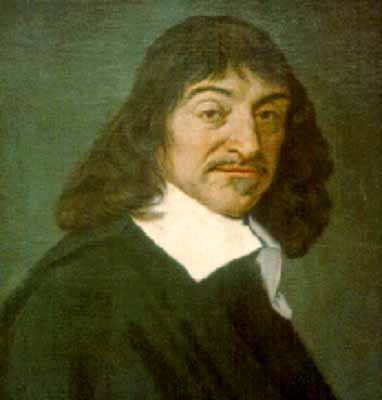

The Philosophical Works of Descartes, vol II. ed Cottingham, J., Stoothoff, R. and Murdoch, D. (Cambridge UP, 1984)
You will also need at least one secondary source. There are many of them. Here are just four. They are arranged in order of difficulty and accuracy. The Williams is by far the best, but it is also by far the most difficult, especially for people beginning philosophy. The Cottingham is the most accessible, but it is also the least accurate. Students who repeat Cottingham's views in their essays can expect a hard time defending them in tutorials.
You might also care to buy, although here I do not insist, a collection of articles on Cartesian issues. Apart from the Cottingham collection just mentioned, you might try:
A nodding acquaintance with European History would not go amiss, either. Descartes lives in exciting times. So find out about The Thirty Years War, and Descartes' own part in it. There are many excellent history books available, but my favourite is
 Norman Davies Europe: A History
Norman Davies Europe: A History
In November 1619 Descartes has a nervous breakdown, and a great philosophical insight. (Find out precisely where and when). What I want for your first essay is a literary piece on Descartes' state of mind on the eve of his breakdown. Where is he? What is he doing? What sort of state is he in? What is he thinking about? And why? What aims and ambitions does he have, intellectual or other? What are his hopes and fears? And so on, and so forth. You get the picture. Try to link all these matters to what you know of Descartes' technical philosophy.
It need not be a long piece. 2,000 words or so would be fine. Choose your own title.
You have three aims:
How is The Dream Argument located textually? How is it located intellectually? What does Descartes think that dreams are like for the purposes of his argument? Are your/our dreams actually like that? Does it matter whether they are or not? Why does Descartes thus cavalierly dismiss the possibility that he might be mad? What is the difference between the dream hypothesis and the demon hypothesis? What does the Dream Argument show, if anything? What criterion does Descartes (later) offer as a way of distinguishing waking from dreaming experiences? Does it work?
DesCartes
Meditations: The Preface to the reader; The Synopsis; Med I, Med II(as far as cogito); Med VI..
Use any secondary source you like. I recommend Williams, and direct your attention to his appendix on the Dream Argument. You may like to compare his treatment with that of the wretched Cottingham.
Barry Stroud
The Significance of Philosophical Scepticism, Clarendon, 1984. An excellent book. Read all you like, but be sure to take in his chapter on The Dream Argument.
H.G. Wells
'A Dream of Armageddon'. This is Wells' last ever short story, and you may find it helpful in thinking about DesCartes' criterion for wakefulness. You can read it here.
Norman Malcolm
'Dreaming and Skepticism' in Philosophical Review (1956), vol 65 pp 14-37, or in Doney, W.(ed) Descartes: A Collection of Critical Essays (Macmillan, 1968). Only read this if you have time. What do you think of Malcolm's argument?
We shall return to this material later, when we have more of a sense of the larger picture. For now, close focus on a small amount of text, and think very hard about what is going on.
Remember the power of the demon hypothesis, which looks set fair to rule out the possibility of achieving the desired result by argument. For it does seem as though no argument would be demon-proof. Any half-decent demon can make you think that something is a valid argument when it isn't.
So: does the cogito involve an argument? If so, how? If not, what is going on instead? What does DesCartes himself say on these matters?
Are 'cogito' and 'sum' derived separately? Or is there some important link between them? Again, what does DesCartes himself say on these matters?
What does Descartes include in cogitationes?
What would be wrong with 'ambulo ergo sum'? According to DesCartes? According to you?
What does 'performative' mean?
How important is the first person here?
Has DesCartes proved that DesCartes exists? Does he think so?
Is it possible to know that something exists without knowing in advance what sort of thing it is?
DesCartes
The Synopsis, Meditation I, and Meditation II as far as the great discovery.
Use your favourite secondary sources, and then pick and choose from Ayer, Harrison, Nagel, Hintikka on the Faculty reading list.
"Is the Cogito a valid argument? Is it an argument at all?"
I recommend that you use the Faculty Reading list for this week. The best account of all is in Williams, chapters 4 and 10, but it is difficult, so you may have to settle for something less accurate and more accessible.
Remember that Cartesian Dualism is Substance Dualism + Causal Interaction. So that there are two quite distinct lines of attack on the Cartesian view. One line of thought attacks the coherence of the causal claim. The other focusses on Substance Dualism on its own, and attacks the very notion of a pure thinking substance. Be sure to keep these two lines of attack separate in both your thinking and your writing. And to encourage you to structure your thinking carefully, I have chosen a title which requires you to piece your stuff together into one coherent story.
"I am not in my body like a pilot in a ship". Really?


